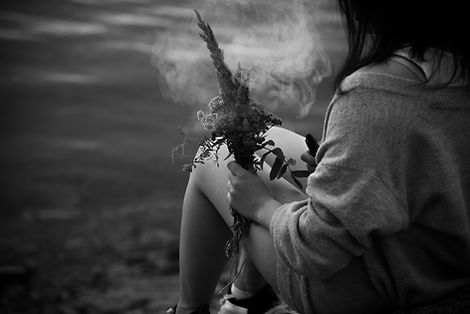stigma_vastu

Marika
"Parents are to blame"
Marika had and abusive mother and her biological father was addicted to drugs. The most vivid childhood memory is the drug and alcohol intoxication of her father. Fear of men began to develop probably at that point. At a young age, Marika experienced sexual harassment from a male relative. The only man whom Marika was not afraid of as a child was her grandfather. The stepfather later supported the actions of the mother, called her “a whore,” “stupid,” “idiot,” and the mother often agreed with him. At the same time, the mother denies the presence of family problems.
.jpg)
After the second child was born, it was often left to Marika's care only. Mother says she only has 1 child, meaning the youngest. Also, mother once planned to marry Marika off to an adult man, "so that she lived in abundance.
“Don't wash dirty linen in public” was the main ideology of the family: at school, Marika looked like everything in her family was fine. School teachers disliked Marika and complained to her parents. Once they complained about something that she really did not do, and after clarifying the circumstances, the teachers still did not apologize. The class teacher disliked Marika even more than other teachers. By the 12th grade, it became clear that Marika had some problems, then the teachers began to talk: “You were such a good girl, and what happened to you?” - but by that time it was too late to try to fix something. Sadness often goes unnoticed by friends and relatives.
Marika suffers from panic attacks (for example, vision darkens, it becomes difficult to breathe) from the age of 14, only at 20 did she find out what it is; she feels that she may have obsessive-compulsive disorder, expressed in obsessive thoughts that she is sick or will soon get sick and she urgently needs to go to the pharmacy to buy medicines.
Problems with alcohol were serious between the ages of 15 and 17 - but Marika overcame this problem on her own

Eating disorders were also present - in adolescence, with a height of more than 160 cm, she weighed 41 kg and refused to eat. Only then did her mother bring her to the doctor. The doctor threatened with a tube and forced feeding, Marika got scared of these procedures and began to restore her food on her own. She believes that the nutritional problem is rooted in the words of relatives.

Marika was never “good enough” and often heard the phrases “too thin - eat more!” or “you got fat - lose weight!”, “your laughter is horrible!”, “you don't smile like that!”, “you don't dress like that!”
Marika's boyfriend supported her and persuaded her to go to a therapist, visits to whom were prohibited in her family under the pretext that a person should cope with everything himself.
“I never want to go back to my childhood, for any money, it was terrible. And mom would say that it was great. "
“There is nothing shameful about going to a psychiatrist, this is the same doctor like everyone else. When your stomach hurts, you go to the doctor, this is the same. "
